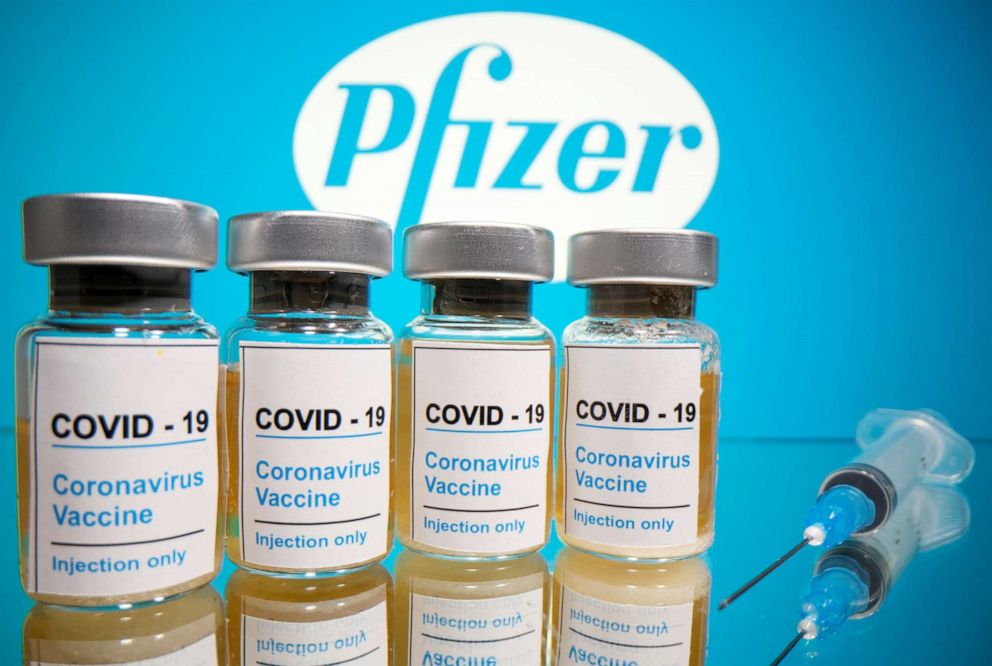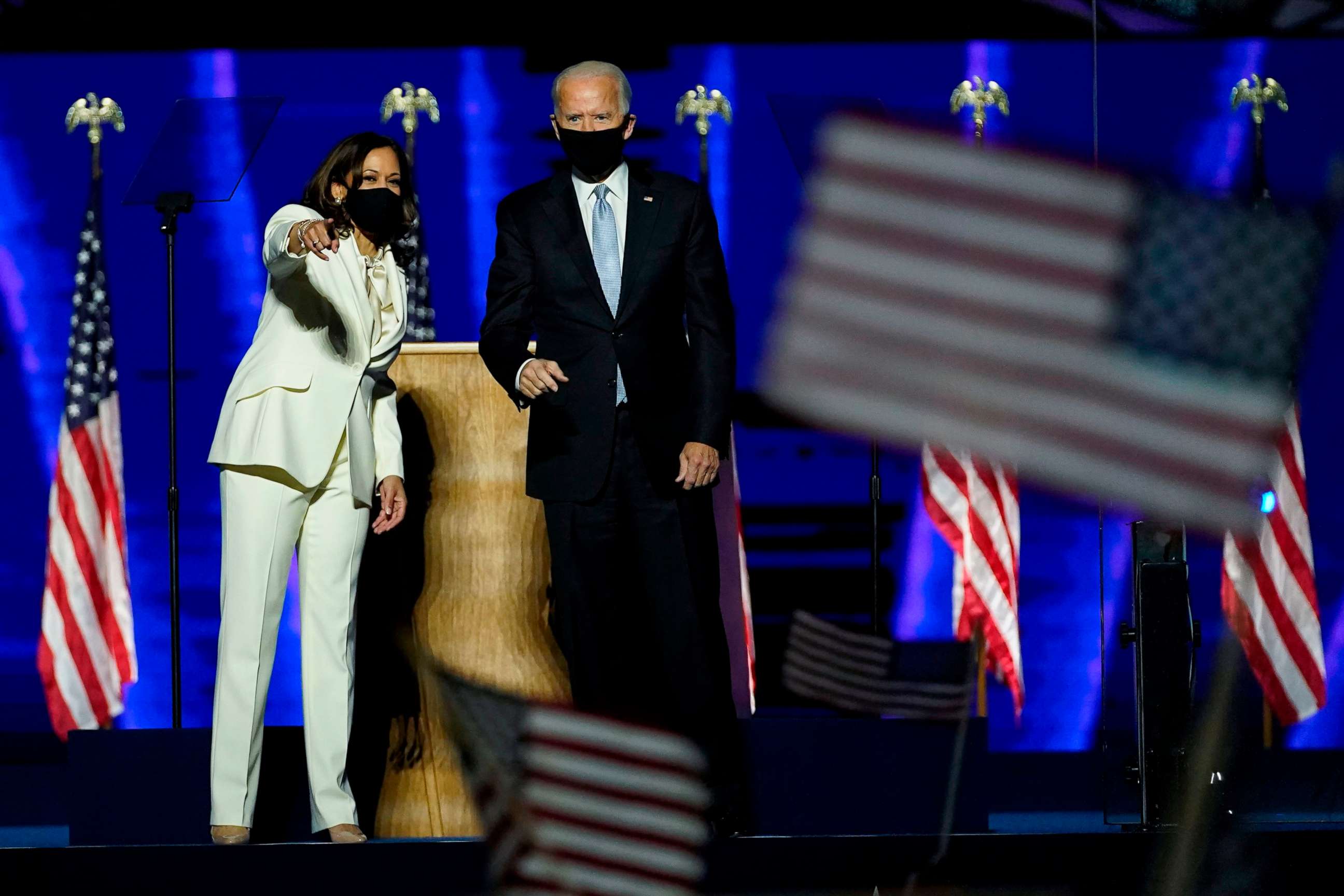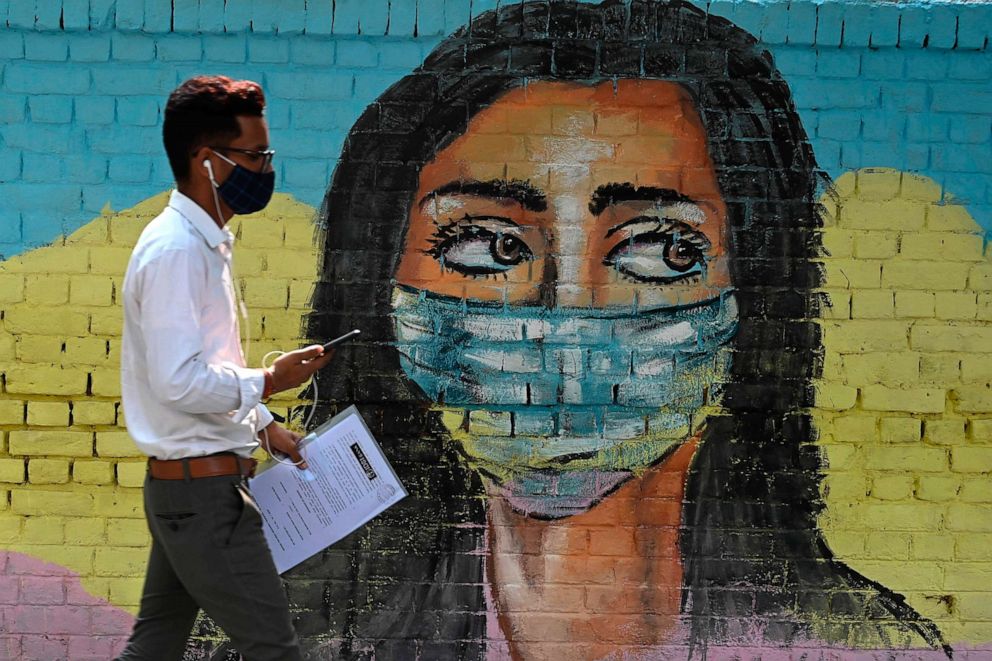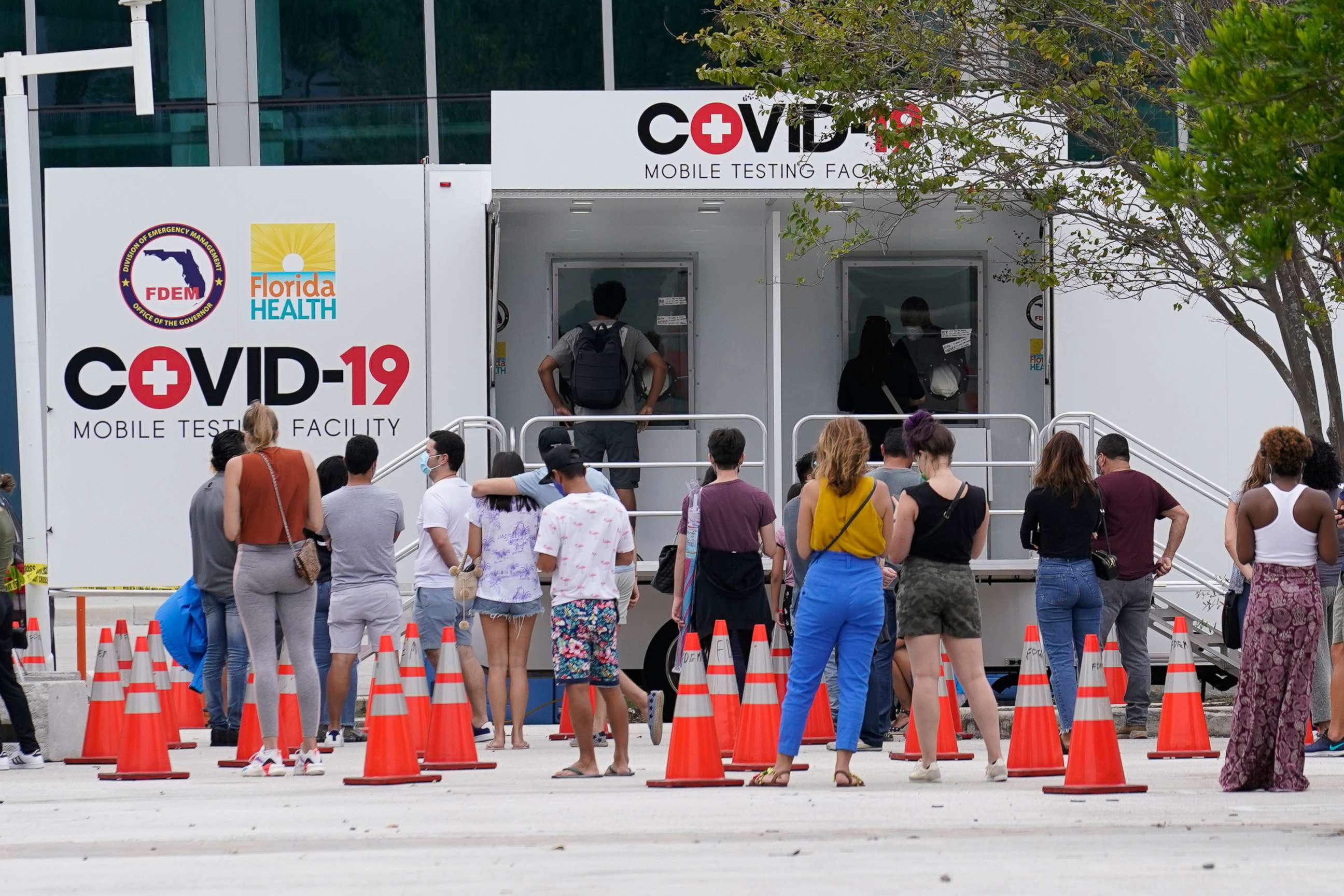Early data shows Pfizer's vaccine is more than 90% effective
In a promising development, an initial glimpse at the data from Pfizer's ongoing late-stage clinical trial shows that the American pharmaceutical giant's COVID-19 vaccine is more effective at preventing the disease than placebo.
A press release from Pfizer early Monday morning said the vaccine, being co-developed with Germany's BioNTech, was "found to be more than 90% effective in preventing COVID-19" according to an early analysis that included 94 confirmed cases of COVID-19 in trial participants.
"With today’s news, we are a significant step closer to providing people around the world with a much-needed breakthrough to help bring an end to this global health crisis," Dr. Albert Bourla, Pfizer chairman and CEO, said in a statement.
Vaccine experts told ABC News these results are "encouraging."
More safety data is still necessary before the company will apply for a limited authorization for high-risk individuals (i.e. elderly, health care providers and/or first responders) or the more complete Biologics License Application that grants approval for almost everyone.

Pfizer's vaccine won't be rolled out in any mass immunization campaign just yet. First, the company must demonstrate that the vaccine is not just effective but also safe. According to guidelines from the U.S. Food and Drug Administration, that means at least two months of safety data after the last injection in half the volunteers.
The company plans to submit for FDA authorization in the third week of November. From there, it could take the FDA two to four weeks to make an authorization decision after a public hearing and a recommendation from an independent vaccine advisory committee.
According to FDA guidance, companies are permitted to ask for an emergency authorization based on efficacy data from an interim analysis, plus at least two months of safety data.
This could make Pfizer the first company to have a vaccine available in the United States if given the green light by the FDA. Other companies, like Moderna, are not far behind.
Operation Warp Speed chief advisor Dr. Moncef Slaoui told ABC News that if everything continues to go according to plan and there are no major scientific or manufacturing delays, most Americans could have access to a vaccine by spring 2021 and possibly be immunized by June.
ABC News' Sony Salzman and Eric Strauss contributed to this report.







